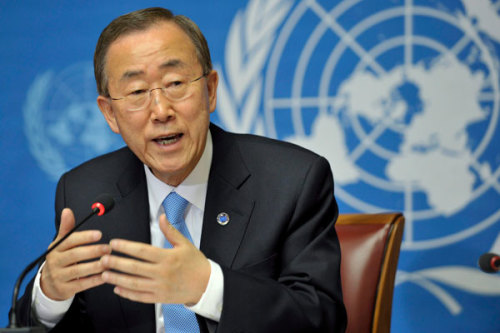
(This article is a guest post written by Milan Vivanco, the Undersecretary-General of Sidwell Model United Nations)
Through Model United Nations, delegates are able to improve their research skills as well as their speaking skills. For the purpose of this article, I hope it will serve as a guidebook to main types of public speaking in MUN.
Speaker’s List:
The real key to this speech is understanding the lasting effect of first impressions. The purpose of your speech (whether it is in general or substantive debate) is to introduce your country’s position on a topic or explain why the committee should discuss a particular topic before others. I suggest that for this speech you use your position paper to guide you. (But don’t just read from it!). It’s very important that you grab the committee’s attention, meaning that you should talk in solid terms that anyone can understand rather than abstract concepts.
If you’re nervous about making a mistake (or even if you’re not) try not to be the first or the last person to speak. Make sure you raise your placard near the beginning when the chair is taking speakers, but not as one of the first few people. I say this because, first, this gives you the opportunity to see a few examples of how it’s done. Secondly, you can feel out the committee this way. If you go first, then you take the risk that what you propose will be flat-out rejected. This way you are able to share your country’s stance without sounding extremely repetitive. Also, since these speeches are about a minute long, keep your’s short and sweet. Don’t bore the committee with numerous statistics about how your country have experience dealing with the problem when one will do.
Moderated Caucus:
A moderated caucus is essentially formal debate; therefore, you should be prepared to have to defend your position, either with facts or with logic. Unfortunately, a mistake that a lot of MUNers make is that they go into too many specifics, either about a topic or about a resolution paper. Remember, you only have a few minutes to speak at the most. Stick to broad terms about what your country’s solution to a problem is and use only the most attention grabbing or convincing quotes or facts. Remember, speeches are more than just about talking or shouting out statistics. People also have to be listening. Therefore, try to have fun and make friends by talking to those around you before you go up. They will be more likely to listen to you if they like you.
Unmoderated Caucus:
An unmoderated caucus will most likely be the most “laid-back” part of a conference that you’ll see. But don’t let this fool you. The time the chair gives you to work on a topic is meant to do exactly that. This is the part where you want to find those whom you’ve befriended or who share your country’s values and discuss the topic at length. Usually what happens is that various groups of country’s break off and form a cluster to talk about different ideas. Go join those groups. Don’t be afraid to voice your concerns about an idea or propose a new one. This is possibly one of the best chances you’ll get to stand out even if you’re to nervous to talk in front of the entire committee during formal debate. Remember, these delegates are people so talk to them like people. Don’t be vulgar or insulting but don’t try to speak with a lofty voice if that’s not who you really are.
Hopefully, after your first conference you will have a far better sense of how a committee works and by then you can be the most active delegate in the room.
Good Luck!
Milan Vivanco


